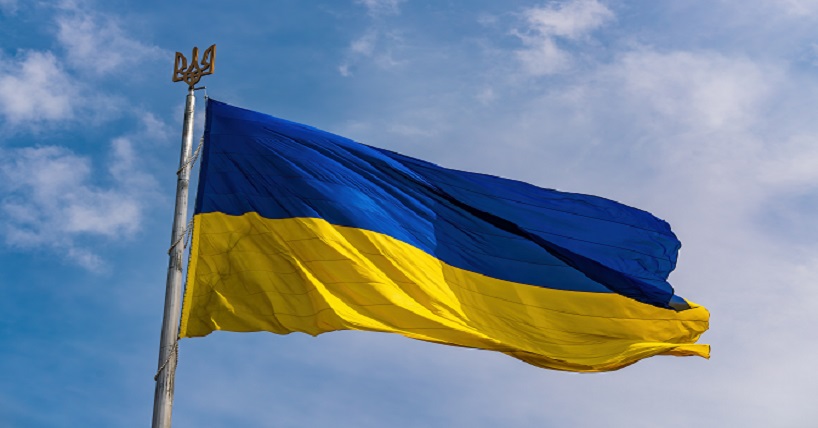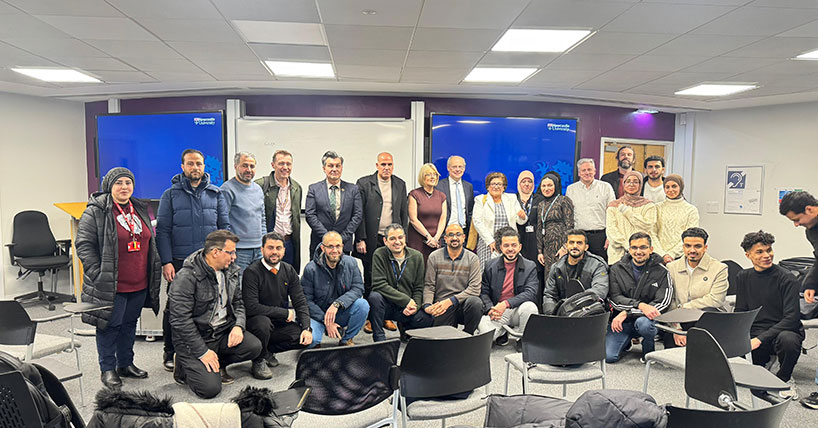Comment: Ukraine must be kept on the public agenda
Comment: The West must keep Ukraine on the public agenda
Published on: 23 February 2023
Dr Rob Dale comments that the West will need to support Ukraine for the long-term to ensure it achieves victory against Russia.
As I write we are fast approaching the one year anniversary of Russia’s full scale invasion of Ukraine on 24 February 2023. The events of the past year have had a profound impact on the world around us, with far-reaching geopolitical and economic consequences for the globe. Vladimir Putin’s war of aggression, and the conduct of the Russian military has shocked the world. Russia’s war has proved enormously destructive and extremely bloody. The “Special Military Operation” was neither swift nor decisive. If Putin thought that Ukraine’s resistance would collapse, and a puppet government easily installed, then he badly miscalculated. Establishing accurate casualty figures in any war is difficult, but over 200,000 Russia soldiers have been killed or wounded in the past year. Ukraine, in comparison, had lost around 100,000 soldiers, and approximately 30,000 civilians have been killed.
Marking the anniversary of the start of this conflict, in some respects, seems slightly artificial. The year mark presents a perfect moment for reflection, and an opportunity to keep the plight of Ukraine and Ukrainians on the public agenda. As the risk of “Ukraine fatigue” amongst politicians, the media, and the wider public grows, the anniversary of the invasion provides an opportunity to highlight the continuing horrors of this conflict. Yet, there remains a good case to argue that this conflict began nearly nine years ago with the annexation of Crimea and the start of the war in eastern Ukraine in March 2014. In addition, over the next year countless other anniversaries will come and go, but with far less recognition and discussion. Families will remember the anniversaries when they received the news that their relative had been killed in combat. Displaced Ukrainians will remember the anniversary of when they closed and locked the doors of their homes for the last time. Those who left the country may recall the anniversary of the day they crossed the Ukrainian border to begin new lives. In the coming weeks and months in cities, towns, and settlements across Ukraine communities will remember when apartment blocks were bombed, shelled, destroyed. Later in the year we will pause to remember the atrocities in Bucha, Irpen, Borodyanko, Mariupol, Kramotorsk. For Ukrainians the start of the war was just one of many days that will live long in the memory.
In the past year much has changed, especially for Ukrainians fighting on the frontlines or displaced by the war, but much remains the same. Ukraine’s resistance, resourcefulness, and resilience has won the nation and its people plaudits, but it remains under attack. Soldiers and civilians continue to lose their lives thanks to Russian aggression and imperialism. Residential buildings and critical infrastructure continue to be laid waste. In Russia, Putin remains resolutely in charge. The speculation that he was terminally ill, or about to be ousted by plotters has proved false. Despite unprecedented economic and political sanctions Russia’s war machine continues to bring death and destruction to Ukraine. The Russian military has not completely collapsed, despite problems with its morale. Within Russia public dissent and anti-war protests have in effect been criminalised. Censorship has increased, propaganda has reached new levels, and what remained of a political opposition has been further marginalised. Russia’s actions have cut it off from the rest of the globe, burning up the soft power it worked so hard to develop after 1991.
In contrast, the world has become more familiar with Ukrainian language, literature, culture, and history since 24 February 2022. Ukraine has frequently been seen as a place far away and of little consequence, absent from most people’s mental maps of European political and cultural geography. There have been signs that this is beginning to change. The news has forced us to become more familiar with cities along the frontline. Before Russia’s invasion few people had any sense of where cities like Sumy, Kherson, Mariupol, Bakhmut, and Sloviansk were. Nevertheless, in many ways Ukraine remains unfamiliar. Disinformation about the war and Ukrainian intentions and actions abounds. Many commentators in the press and media have limited knowledge and understanding of Ukraine’s history, culture, and language. In some quarters Ukraine remains a void onto which ideas, preoccupations and fears can be projected. Russian propaganda continues to present Ukraine as a land populated by extremists, fascists, and even questions Ukrainian statehood and independence. Elsewhere, Ukraine is presented as politically and economically corrupt, and presented as the product of an illegitimate coup. Much work remains to be done to highlight the extraordinary challenges Ukraine faces. But, above all we need to understand that this not a war of abstractions. Ukrainians continue to face shelling and missile attacks, and the violence of occupying forces. It is being fought by real people.
Ukraine’s military resistance, aided by western allies and NATO, has held the Russian military onslaught at bay. Counter offensives around Kharkiv and Kherson have demonstrated what the Ukrainian army is capable of. Zelensky’s wartime leadership continues to impress global audiences. Nevertheless, the war continues, and a decisive victory for either side seems a long way off. Ukraine and its allies need to prepare themselves for the possibility of a protracted conflict. Russia in contrast could end the war swiftly, but for a political culture that repeatedly invokes the language of victory and military glory such a withdrawal seems extremely unlikely. In other words, Ukraine is going to need support and assistance for a long time, not least in reconstructing cities and communities in the warzone, repairing national infrastructure, and helping its traumatized and displaced citizens to rebuild their lives.
Dr Robert Dale is a lecturer in Russian History.
Read our other commentary on Ukraine:
Women, Peace and Security - NATO and the Russia-Ukraine War
Women are key to the resolution of the Russia-Ukraine war
Versions of history obscure Ukraine's rich and vibrant past
Read our response to the war in Ukraine and what we're doing to support those affected.




